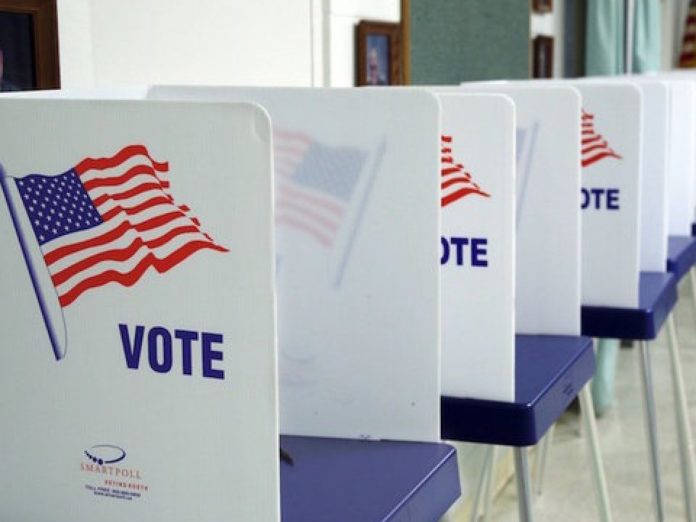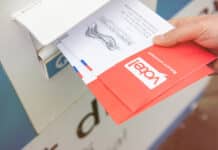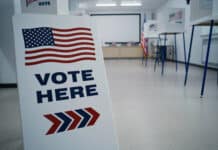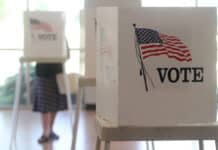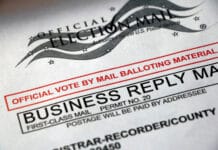Congress has appropriated $14 million in total to the State of Minnesota in the form of COVID-19 election funding and the Help America Vote Act (HAVA) election security bill. Now, House Democrats have crafted a bill, HF 3429, to spend the federal money. According to conservative activists with knowledge of the matter, HF 3429 contains several provisions that are troubling.
David Harsanyi, writing at the New York Post, has outlined how Democrats across the country are trying to use the pandemic as a pretext to re-write U.S. election law. This includes attempting to allow mailed-in ballots sent potentially days after the election day occurred.
Minnesota Democrats also appear to be using the pandemic to push their agenda on election law. This follows last session in Minnesota, where Democratic Secretary of State Steve Simon was already allowed a “blank check” on the federal money to be spent at that time, according to conservative activists.
Changing the law on election judges at health care facilities, including nursing homes
HF 3429 Section 1, Subdivision 1 allows “employees of a health care facility or hospital to administer the absentee voting process to temporary or permanent residents or patients in those facilities under Minnesota Statutes, section 203B.11.” That’s in stark contrast with existing law where election judges from the different major parties must be in the health care facilities to oversee absentee voting.
There are already concerns in the state about election fraud at nursing homes and group homes, involving the exploitation of vulnerable adults. A Minnesota case made national news a few years ago, when disabled residents of a group home in Crow Wing County (home of Sen. Majority Leader Paul Gazelka) were driven to the polling station and told which candidates to vote for. The father of a resident who had a traumatic brain injury after saving the life of his drowning sister learned of the matter and filed a complaint, which led to a grand jury. Witnesses said in affidavits that many of the adults were “totally incapacitated” and that they overheard many of these residents being told to vote for only DFL candidates.
Yet, due to health concerns about bringing election judges into health care facilities and nursing homes during the coronavirus, the Senate GOP appears to be backing the measure to allow healthcare staff to facilitate absentee voting, in place of election judges from different political parties as the current law requires.
Conservative activists are currently fighting to get an amendment that would—at the very least—require the healthcare workers who assist in absentee voting to be disclosed, just as would be required of election judges. They say this will add some transparency and accountability to the process.
Increasing the ease of vote fraud instead of security
Next, HF 3429 tackles the funding allocated to Minnesota for election security, and only later does it address funding due to the coronavirus. Section 3, Subd. 4 (2) of HF 3429, reads that “authorized uses” for the $7.4 million in federal HAVA money (not tied to the coronavirus) includes “improving accessibility.”
Yet the HAVA funding was intended by Congress to support election security and integrity measures, including spending on cybersecurity. The federal Act makes no mention of improving accessibility. Specifically, Congress’s HAVA bill contained language that the money should be used to “Conduct post-election audits to check the accuracy of the vote count,” which is nowhere to be found in HF 3429.
Conservative activists fear that HF 3429 gives Simon a blank check instead of boosting election security. “Improving accessibility” could potentially be used by the Secretary of State on almost anything, including mail-in balloting and other schemes to increase Democratic turnout in an important election year.
In a statement against the idea of mail-in ballots, the Minnesota Voter’s Alliance argues: “Minnesota already has a smooth-running, no-excuse Absentee Ballot system. Any person who prefers to avoid the polling place on election-day, can request an absentee ballot be mailed to them and can send that ballot in to be counted, also by mail. Voting by Absentee Ballot can be done as early as 46 days before election-day.”
Another blank check for Simon
Next, Section 3, Subd. 4 (6) reads that the $7.4 million in HAVA money not tied to the coronavirus can be used for “any activities authorized by section 4, subdivision 4.” A read of Section 4, Subd. 4, (5) says that one of these authorized uses is the “preparation of new polling place locations.”
This text in Section 4, which deals with the $6.9 million allocated for elections due to the coronavirus (allocated for elections in the federal CARES Act), leaves out language in the federal CARES Act which allows for “preparation of new polling place locations when existing sites must be closed” (emphasis added by the author).
In other words, the existing HF 3429, if not amended in the Senate, gives Simon another blank check to create new polling locations, without any regard to whether or not the coronavirus has impacted a polling location.
Aside from Senate Republicans not passing HF 3429 as-is, in any companion bills, conservative activists are hopeful that the GOP Senate will include provisions that (a) Simon be required to give an itemized accounting of how he has spent the previous tranche of HAVA money, including how much is still available, (b) that better accounting is done of the hundreds of thousands of absentee ballots that are mailed out, including accounting for which ballots are unused, and (c) funding is in part used for post-election analysis and reporting, among other concerns.





